Welcome to the third and final part of The Radetzky Mach Readalong, kindly hosted by Caroline and Lizzy. We’re reading Joseph Roth’s famous novel about the decline and fall of the Austro-Hungarian Empire as seen through the eyes of the Trotta family.
This post discusses key plot points from towards the end of the book, so if you don’t want to know the score, look away now. Or if you want to begin at the beginning, you can find the earlier parts of the readalong here:
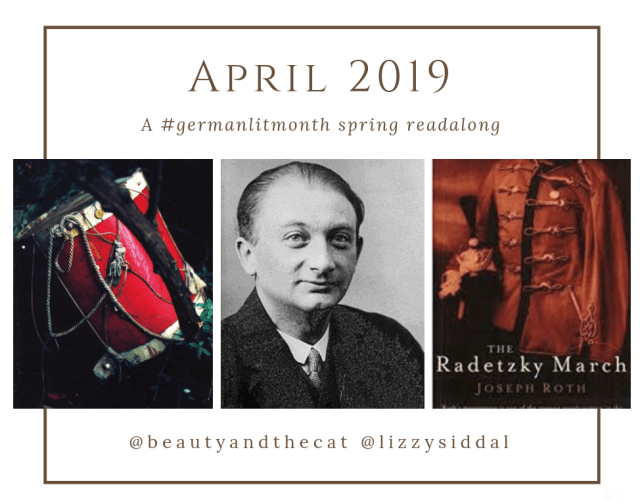
There seems to be only one true and honest relationship in this novel—the friendship between district administrator von Trotta and doctor Skowronnek. Would you agree? What did you think of their relationship?
Sadly, I think I agree. I say “sadly” because this is not exactly a joyful meeting of souls. It’s a hesitant, reticent relationship in which they hide behind chess and smalltalk for as long as possible, and Baron von Trotta only opens up about his son’s problems when he is totally desperate and has no other option. The fact that this relationship seems true and honest tells you a lot about the other relationships in the book.
But still, the friendship between these two old men is quite touching in the end, and the doctor clearly wants to help in any way he can. He even gives freely of his own savings to clear Carl Joseph’s debts and telling the Baron not to worry about repaying him (a huge gesture that the Baron accepts a little too quickly for my liking!).
There’s a similar gesture towards Carl Joseph by his servant, Onufri, however, and it got my wondering about the motives. Onufri digs up the coins he has buried in his small plot of land and offers them to his master to save him. But Carl Joseph has never done anything to inspire such devotion—he treats Onufri with embarrassing awkwardness, and we have no sign of any genuine relationship between them.
So why does Onufri, a poor man, offer his life savings to save Carl Joseph? Not because he likes him or because they have a genuine relationship. Perhaps because he feels it is his duty, or because his own honour is somehow bound up with that of his master? Perhaps that’s what everyone in this novel is doing, acting out of a sense of compulsion and duty towards their social superiors, all the way up to the emperor himself? Perhaps that’s why they all seem so constrained, despite their relative privilege. Perhaps that’s why the empire collapses, because all of the energy of its subjects has been devoted to propping up those above them and covering up their flaws.
And, if so, does the doctor offer his help and his money because he has a true and honest relationship with the baron? Or is he, like Onufri, acting out of a sense of duty towards his social superior?
Do you think the novel would have taken another turn, had Carl Joseph opened his father’s letter?
No. I think that the trajectory of the novel is pretty clear from the beginning, and a happy ending is not on the table. The characters are like puppets in the hands of Fate, and if Carl Joseph had opened the letter, I doubt that he would have moved home and recovered and lived happily ever after.
Besides, Carl Joseph himself seems compelled towards self-destruction at this point. He doesn’t open the letter for the same reason that an alcoholic skips AA meetings or a severely depressed person doesn’t reach out for help. In that moment, they don’t want to be helped or saved. They don’t want anything that would interfere with the path they have chosen. Perhaps that freedom to choose, even if it’s to choose poorly, is all that Carl Joseph feels he has left at this point.
What is the significance of the regimental party at Chojnicki’s country house?
The party is a microcosm of the empire. Its organisers are obsessed with protocol and blind to the coming disaster. They spend weeks organising the party, deciding who to invite and in which order to invite them and what wording to use on the invitations to which guests of which rank.
Then they are drunk and dancing when news comes in of the assassination of the Archduke Franz Ferdinand in Sarajevo. And then the superficial unity breaks apart immediately, and they dissolve into their own national groupings, divided over the meaning of the news and what to do about it, arguing and starting to speak their own languages and exclude each other.
Many of the responses, too, are banal. Should we stop the party or not? Should the band play or not? These people are dulled by years of stultifying protocol and are not ready for the war to come.
What role does nature play throughout the novel?
I hadn’t really noticed it up to this point, to be honest, but at this climax it does contribute to the drama and sense of sudden change, as a violent thunderstorm breaks up the party, forces them inside, and then lashes rain down on them as they huddle inside and try to decide what to do.
Chapter 21 takes us to the Eastern front. What do you think about the way Roth depicts the conflict? How do you feel about the manner of Carl Joseph’s death?
This is an interesting novel in that military life plays such a large role in it, but the descriptions of war itself are quite limited. After all of this buildup, we don’t see the details of battles or get visceral descriptions of the horrors of war. We get banal confusion, marching up and down, mistakes and miscommunication, and then the senseless death of the main character, shot in the head as he’s trying to fetch a bucket of water.
I thought it was perfect. It accords with other accounts of war I’ve read by people who have experienced it (Orwell’s Homage to Catalonia comes to mind). We seem to like to impose order on war, to condense it into the decisive battles, the brilliant manoeuvres, the heroic sacrifices. But most of war seems to be about mud and boredom and lice and senseless death.
Poor Carl Joseph doesn’t even last long enough to get lice. He dies before the war has really begun, a sad end to all the years living in the shadow of his grandson, the “hero of Solferino”. It’s also, of course, a mirror of the Habsburg empire, after half a millennium of hegemony, collapsing in incompetent confusion and anti-climax.
Did you find the ending satisfying?
Yes and no. I think a better ending would have been the death of Carl Joseph, the father getting the letter, and the curtain coming down. The epilogue doesn’t seem to add much, with the inconclusive meeting with Frau von Taussig and Chojnicki.
But the baron’s death, ending the Trotta family line at the same time as the Emperor himself dies, is a neat tying up of the connections that have existed between the two since the beginning of the book. As the burgomaster and the doctor remark after the funeral, the Baron could not have outlived the Emperor, and neither of them could have outlived Austria. So the ending felt fitting.
Did anything surprise you during this section?
It surprised me that Carl Joseph’s problems seemed for a time to be at an end. His debts were cleared through his father’s intervention with the Emperor himself, Kapturak was deported, and Carl Joseph himself was finally free of the army and able to live the peaceful life of rural administration that he seemed more suited for.
It surprised me, but I thought it was a great way to do it. Carl Joseph seems to be headed for disaster, and then suddenly everything was OK through an unlikely set of circumstances. But then, of course, comes the war that has been looming all through the book, and Carl Joseph can’t escape that one.
The trajectory reminded me of the death of Jacques in Part 2: seemingly terminal decline, followed by a sudden, unexpected revival, and then, just as everything seems to be OK, an equally sudden death. Perhaps it also mirrors the fate of the Austrian empire, which experienced a late cultural flourishing even in its death throes.
The Radetzky March has been described as a nostalgic novel for a lost empire. Is nostalgic the adjective you’d use?
Not exactly, but I know why it’s described that way. The Radetzky March is a novel of heavy social criticism. It makes the lost empire, at least in its dying days, seem like a terrible place to live. As I mentioned in the earlier parts, the characters seem locked into their fates. They see calamities coming and are unable to do anything to avoid them. The social rules and military codes seem stifling of individual initiative. So in that sense, it’s not nostalgic at all.
And yet there is also a strange sense of nostalgia pervading the novel. Perhaps that’s partly because of what came later. The carnage of World War I was so horrific that pretty much any society preceding it seems preferable. Stifling social rules and bureaucratic incompetence are better than outright slaughter.
Roth only alludes to the devastation of the war at the end of the book, and he can’t include the even worse horrors to come, under Nazi rule. As it happens, I have been travelling in the former Austrian empire while reading this book. Yesterday I visited the memorial site for the Lidice massacre, in which the Nazis took brutal revenge on the men, women and children of a whole village in retaliation for the assassination of Heydrich. I also visited the infamous concentration camp of Theresienstadt.

None of this is in the book, of course, which was written in 1932. But I know it. I know that Roth himself died a broken man, broken not just by alcoholism but by the knowledge of the hell he was living in as an Austrian Jew under Hitler. According to the potted history on Wikipedia, “Roth’s final collapse was precipitated by hearing the news that the playwright Ernst Toller had hanged himself in New York.”
All of these future horrors hang over the book, whether we like it or not, colouring Roth’s original words and evoking nostalgia for a society that, as deeply flawed as it was and as critical as the author is of it, was at least a step above the fascist barbarism that succeeded it. If current trends play out, we may soon be viewing today’s Europe the same way.
What struck you the most in this novel, what do you like or dislike the most?
What struck me was the skill with which Roth told a story about an unlikeable, unsympathetic character whose eventual fate is pretty clear from an early stage, and yet made it so readable.
We often hear these days about novels “not working” because a reader didn’t feel “invested” or a character was not sufficiently “likeable”. Roth shows that you can write a good novel about a character who’s not very likeable, about a character who doesn’t even have the gumption to make himself dislikeable either. And he can do all of this while delivering few surprises in the plot as well.
Would you reread The Radetzky March?
I rarely reread books. There are so many other great books out there to discover, and so little time. So although I enjoyed The Radetzky March, I doubt I’ll return to it. If you haven’t read it, though, I’d recommend picking it up.
Thanks again to Lizzy and Caroline for organising this readalong. What do you think of The Radetzky March? If you’ve read it, do you agree or disagree with my points? If you haven’t, do you think you will?
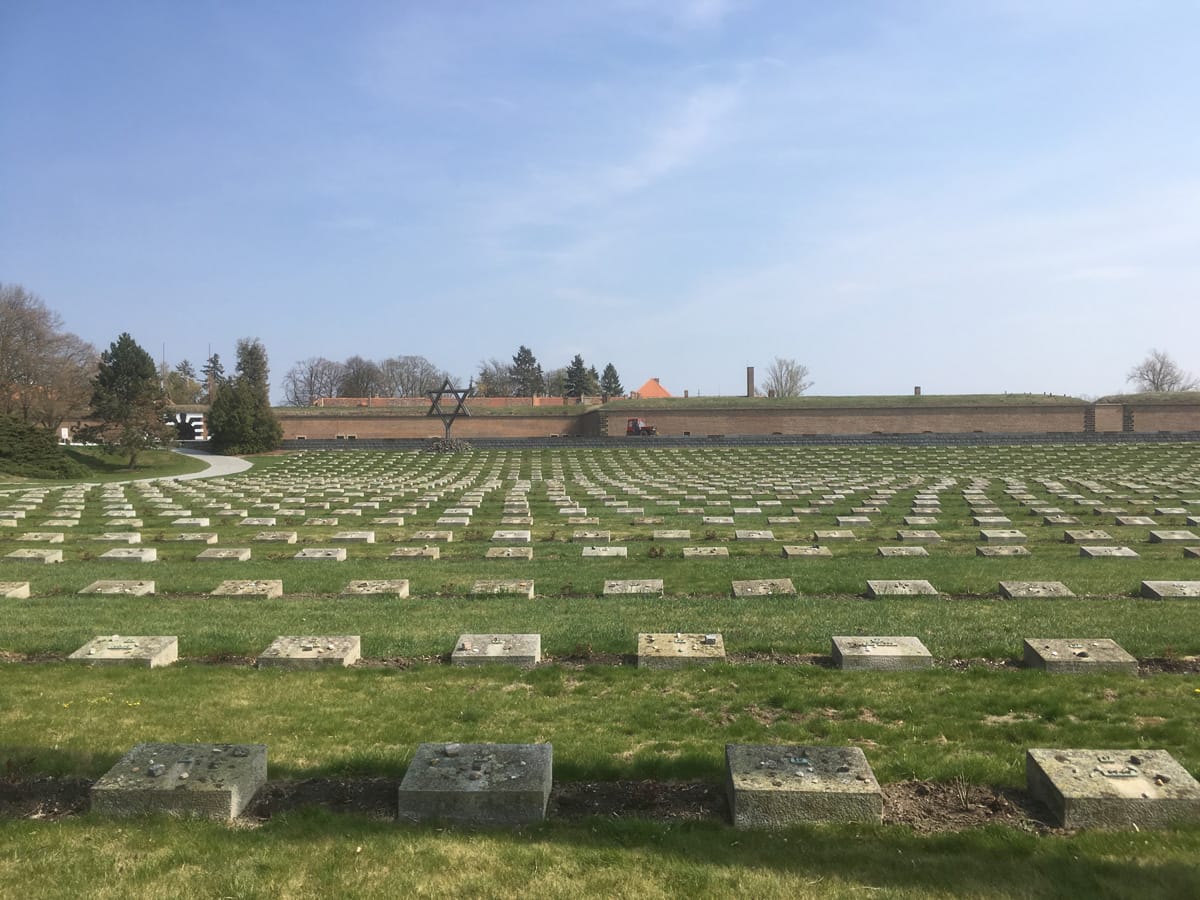
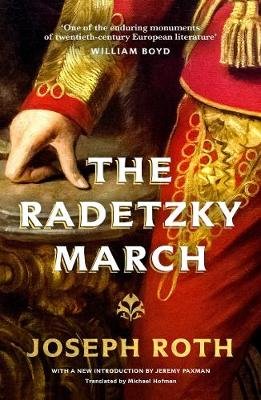
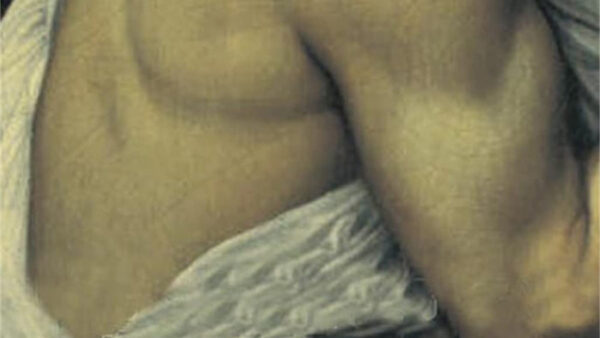
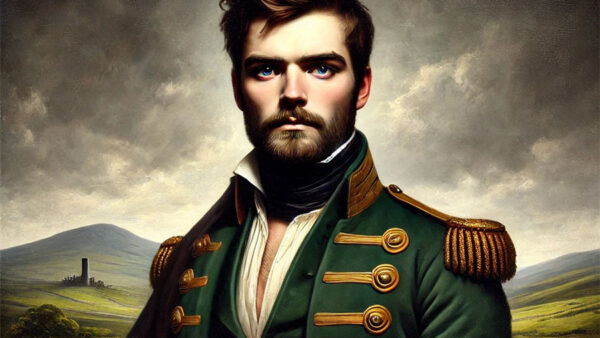
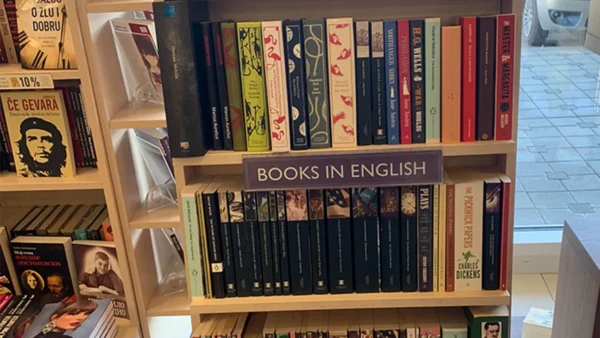
There are 6 comments
Interesting post about an interesting sounding book. It has been especially enlightening to read the various takes on the novel from several bloggers. Maybe I will get to it myself in the coming months.
Yes, it’s fun to read the different versions. These readalongs are a good reminder of how different people read the same book in different ways. Hope you do get to it – I’d love to hear your take on it too 🙂
Thanks so much Andrew. I really like the way you reflect on Roth’s own life and the fact that he’s writing this after the slaughter of the first World War and during the rise of facism. I was also wondering how much the depiction of CJ’s descent into alcoholism came from his own experience.
Glad you liked it, Mandy! I did feel real life affecting the book, and yes, I think the alcoholism is so perfectly drawn that sadly he was writing from experience. Thanks for reading along with me! Heading over to see your answers now 🙂
I totally agree with you that fiction “doesn’t work” or fails because of a lack of likable characters or characters that readers can identify or empathize with. I found Carl Joseph a compelling character, despite all of his faults. He drives the narrative, I think, because I kept waiting and hoping for what he would do next, but also what would happen to him next. I asked myself, “Is Roth really going to allow CJ to circle the drain, or what?
I have enjoyed all of your brilliant commentary about this novel.
And I’m so interested you’ve been touring and that you visited Lidice and Theresienstadt.
He was very compelling, wasn’t he? I was quite surprised about that, since on the surface he doesn’t seem that compelling to me. But the character definitely worked for this novel. I’ve enjoyed your commentary too, Judith—heading over to read your final part now!